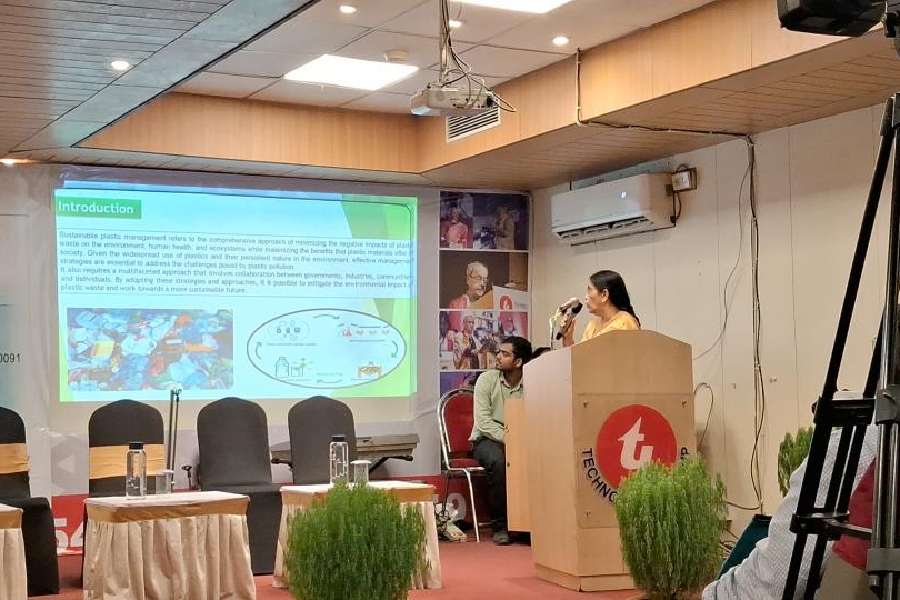Plant medicinal trees, cut plastic use


Planting trees such as neem, chirabilva, ashvattha, shishu, tetul, and kadamba can help improve air quality and reduce toxicity, according to an expert.
“These medicinal plants should be planted and grown extensively to curb plastic pollution,” said West Bengal State Medicinal Plant Board director Shyamalendu Mukherjee at a discussion on Solution for Sustainable Plastic Waste Management held on September 2. The discussion was organised by Techno India University on its campus in Sector V.
Mukherjee also prescribed medicinal plants to fight plastic pollutants. “Tulsi, amla, giloy, turmeric, ashwagandha, guggulu, haritaki, pippali, and bhallatak should be included in our daily diet to enhance our immunity,” he said.
“Each person uses 15 kg of plastic a year,” said Dhananjoy Ghosh, a former senior general manager at Numaligarh Refinery. India is among the 12 countries responsible for 52 per cent of the world’s mismanaged plastic waste and that, he emphasised, is an adequate reason why plastic bags must make way for jute and cloth bags.
“It’s an existential necessity for sustainability of existence and the environment,” said Ghosh.
Not just plastic, it is also very important as to how we manage other waste, according to the experts.
“Plastic pollution is fast becoming a major environmental threat so we can recycle plastic by making raincoats, and 3D public furniture from plastic shopping bags,” proposed Rina Paladhi, Techno India University’s director of academics, in a PowerPoint presentation.
“Things such as recycled paper and cardboard, jute and cloth bags, glass, bamboo, bioplastic and beeswax can serve as alternatives to plastic,” she added.
There is no single solution to plastic pollution, she said, adding that what is urgently required is a combination of approaches, including source reduction, encouraging reusable products, efficient collection and sorting, mechanical and chemical recycling, waste-to-energy conversion, and landfilling.
The experts also called for concerted efforts from all stakeholders — governments, industries and society — to address this growing problem.
Following a mandate by the West Bengal Pollution Control Board (WBPCB), 128 urban local bodies, including the Bidhannagar Municipal Corporation, have begun collecting segregated disposable waste from houses.
“Biomining has been started in Sector V and New Town, and the topmost surface of the road is being built on New Town roads using plastic wastes. The WBPCB is also monitoring the Hooghly to prevent pollution,” said WBPCB chief technical advisor Tapas Gupta.
He stressed the need to cooperate with the authorities in their effort to make West Bengal a plastic-free state.
“At least 400 tons of plastic waste, are generated in West Bengal every day,” Gupta said, adding plastic pollution limits the ecosystem’s ability to adapt to climate change and harms the livelihoods of millions of people.
Some steps were listed out to help reduce plastic pollution (see box).
“By taking these steps, we can all help reduce plastic waste. We cannot stop using plastic altogether, but we can certainly limit its use and make a difference,” said Paladhi.
The discussion was organised by the Rotary Club of Dum Dum in association with Techno India University.